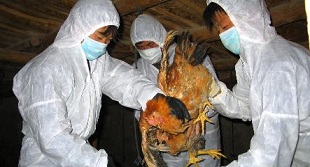
Health experts prescribe prevention and early treatment to avoid infections and deaths
Kampala, Uganda | PATRICIA AKANKWATSA | Uganda is experiencing a worrying surge in malaria cases, according to the Ministry of Health with figures showing there was an increase in malaria cases from 100,000 in 2021 to 199,695 cases in 2022. That an almost 100% increase in malaria cases.
According to the World Health Organisation (WHO) malaria report of 2022, it appears the surge in cases in Uganda is not an exception. It is part of a worldwide increase with WHO reporting that there were an estimated 247 million malaria cases in 2021 in the 84 malaria-endemic countries; an increase from 245 million in 2020 with the most increase coming from countries in the WHO African region.
Dr Dennis Rubahika, the head of malaria case management at the Ministry of Health, says that for the past 7/8 months, almost half of the country has had “an abnormal increase in malaria cases”.
“Climate change and complacency among the public towards prevention of malaria is one the reasons for this upsurge,”
“Some people stopped using mosquito nets because they knew malaria had gone down,” he said.
The Ministry of Health is now organising health camps in regions that have registered an upsurge in malaria infections to sensitize locals on how to prevent malaria.
The most affected regions are Bugisu, West Nile, Busoga, Acholi and Lango and Karamoja.
“We are doing this because the first line of prevention is at the home level,” Dr Tusiime said.
“We call upon people to clean their home environments by slashing grass and emptying containers so that mosquitoes do not breed there. Put mosquito nets in the windows and ventilators of the house,” he added.
Due to the increased malaria infections in the country, health officials are recommending prevention and early treatment to avoid death.
Last week at a meeting where Global Fund announced that it will be releasing $587 million to the government of Uganda for fighting malaria, HIV and Tuberculosis, the Health Ministry Permanent Secretary,, Dr Diana Atwine said the government had agreed with the Global Fund and others partners to put more emphasis on disease prevention.
This she said is necessary, since the gains in reduction of the past five years, seem to have stagnated and the health ministry’s interventions do not seem to be sufficient.
“Since we have an upgraded Public Health Act, we will provide processes that will enable the community to take responsibility for their health. Disease prevention is the role of every home, and the community and not the government alone. We want people to clear the bush in and near their homes and do basics like removing stagnant water that helps mosquitoes breed,” Atwine said.
The Health Ministry PS said initiatives will also be put on preventive measures to contain malaria in schools by supporting them with treated mosquito nets and fumigation.
Dr Patrick Tusiime, the commissioner of Communicable Diseases Prevention and Control at the Ministry of Health, cautioned the public not to forget the basic malaria prevention methods and also to rush to the hospital in the first 24 hours when infected.
“If one delays at home and goes to the health facility later, it is easy to develop complications. Malaria parasites destroy blood cells, in that case, your delay can cause severe anaemia in both children and adults,” he said on Jan 23rd at the Ministry of Health headquarters in Kampala during the donation of anti-malaria drugs and other logistics from the private sector.
 The Independent Uganda: You get the Truth we Pay the Price
The Independent Uganda: You get the Truth we Pay the Price



